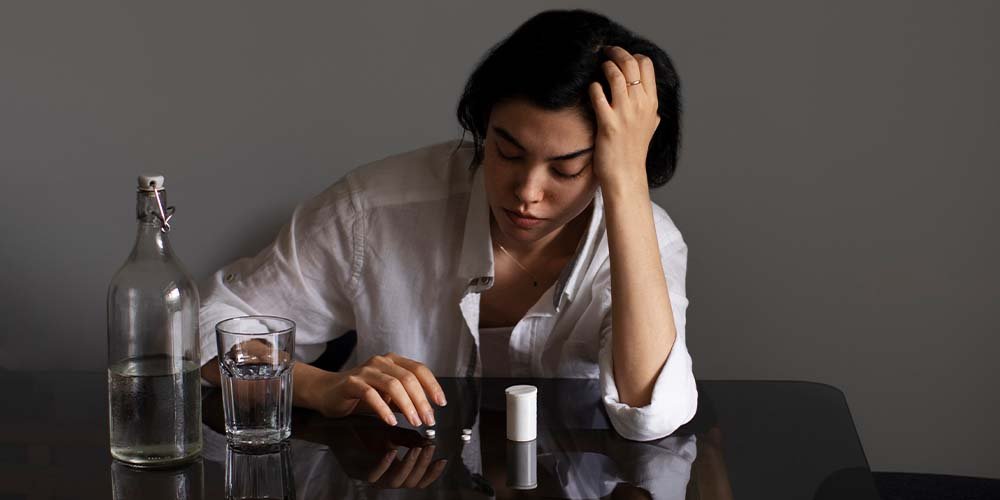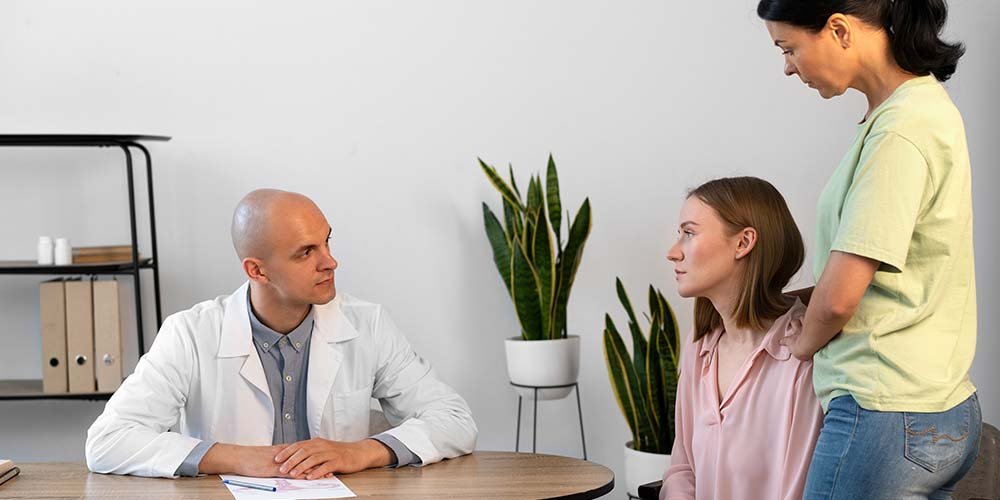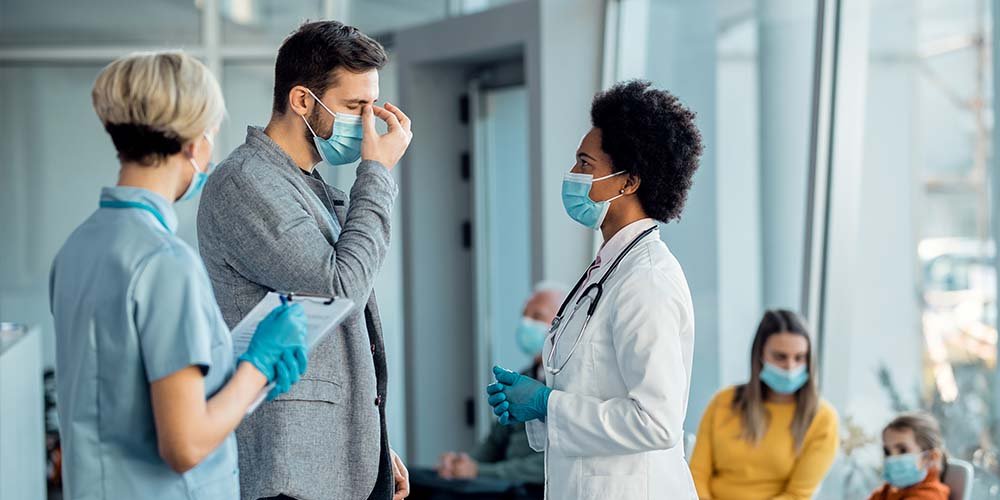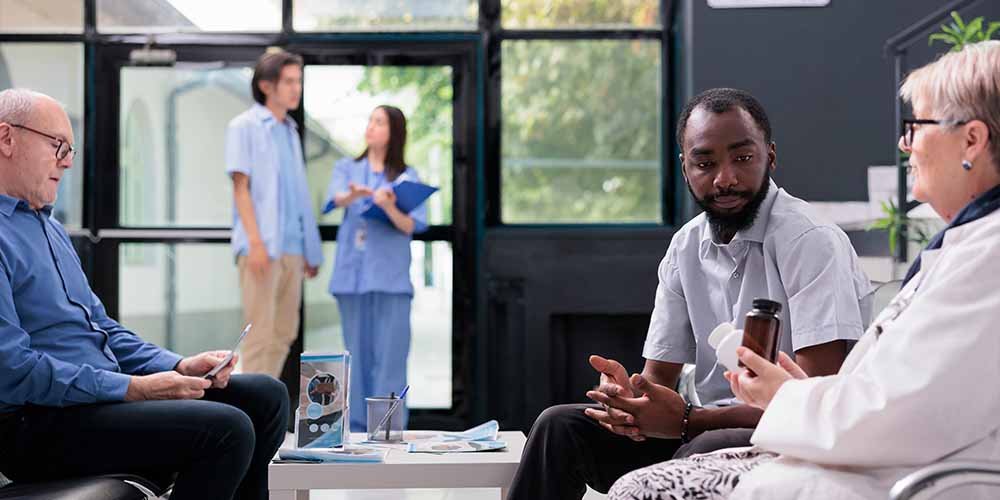Why Expert Help is Crucial for Overcoming Mental Health and Addiction Challenges

Mental health refers to the overall well-being of an individual, including their physical, psychological, and emotional states. It determines how a person thinks, feels, and behaves in society. Addiction and mental health often co-occur, creating a complex cycle that can be challenging to break without ongoing support.
Mental disorders such as anxiety, schizophrenia, or substance use can significantly affect an individual’s life, impacting their work and social relationships. Trying to overcome these challenges at home can be difficult. Expert help through regular therapies, medications, counseling, and alcohol sessions may help individuals reclaim their lives and achieve overall well-being away from addiction.
This blog will provide you with a guide to understanding why expert help is crucial for overcoming mental health and addiction challenges, as well as the best treatment centers for mental disorders.
Self-Help vs. Professional Help: Understanding the Difference
While self-help techniques such as meditation, breathing exercises, yoga, and support groups can be helpful, they may not be solely beneficial for individuals fighting through the challenges of mental health disorders. Many individuals attempt to manage these difficulties independently, often underestimating their seriousness.
However, it’s important to remember that mental health disorders and addiction are medical conditions, not personality traits or weaknesses. Therefore, they require extensive treatment by professionals.
Self-help techniques focus on surface-level changes in treating mental disorders, but they may not be enough to address and cure severe psychological, emotional, and mental factors associated with the condition.
Professional help, on the other hand, works on deeper-level changes, focusing on the underlying cause and the specific treatment method required. A rehabilitation center trains its psychiatrists, psychologists, and social workers to provide individualized treatment plans that cater to each person’s unique needs.
Benefits of Seeking Expert Help for Mental Disorders in a Rehabilitation Center
Here are the benefits of seeking professional help for mental illness in a mental disorder treatment center:
- Accurate Diagnosis and Personalized Treatment Plan in a Rehab Center: Mental health professionals in a rehab center are trained to provide an accurate diagnosis and the right treatment plan, which is crucial for faster recovery. Most of the time, individuals and their families may not realize that they are suffering from a serious mental health issue, like depression or a personality disorder. Psychologists in a mental hospital can help identify the problem and offer the right solution. Furthermore, mental health professionals offer personalized and evidence-based plans tailored to the specific needs of each individual, including cognitive behavioral therapy (CBT), dialectical behavior therapy (DBT), group sessions, medication management, and recreational activities.
- Addressing Trauma and Root Causes with an Expert: Mental health disorders and addiction often have an underlying cause, such as unresolved childhood trauma, chronic stress, or work-life imbalance, which can significantly impact an individual’s mental health and further lead to addictive behavior. To resolve these issues and achieve long-term recovery, individuals can seek professional help. Therapeutic modalities such as Eye Movement Desensitization and Reprocessing (EMDR) and trauma-informed cognitive behavioral therapy (CBT) can help individuals process their past trauma adaptively, thereby breaking the cycle of addiction and emotional turmoil.
- Professional Guidance on Medication Management in a Mental Health Clinic: Medications are often required to treat mental disorders, such as antipsychotics and antidepressants. Psychiatrists in a rehabilitation center play a crucial role in prescribing the right medication, which is essential to reduce symptoms effectively, while also monitoring the side effects of drugs. Medication management is more crucial in cases of dual diagnosis, where an individual requires treatment for both mental health disorders and substance abuse disorders. Psychiatric ward professionals ensure the safe administration of medication, thereby preventing relapses.
Benefits of Seeking Expert Help in Substance Addiction Recovery
Seeking professional help for addiction can benefit you in the following ways:
- Detoxification and Medical Supervision at an Addiction Treatment Centre: Medical professionals in a rehabilitation center guide individuals in detoxification, a process where the body clears itself from substances. Often, individuals may experience withdrawal symptoms, which can potentially be fatal, particularly for substances like alcohol and opioids. Psychiatrists at a detoxification center work closely to ensure that the detox process is safe and effective. They also provide medications to help prevent relapses and reduce cravings for substances. A mental health facility provides a structured and safe environment, which is often necessary for addiction recovery. These centers also provide a substance-free space where the primary focus is on recovery, along with providing alcohol-anonymous psychoeducation and counseling sessions without the triggers of everyday life.
- Group Sessions and Peer Support in a Mental Health Center for Addiction: Group sessions and peer support provide a sense of community and coherence, offering constant encouragement and shared experience to overcome the challenges caused by drug and alcohol addiction.
- Follow-Up and Relapse Prevention Strategies Used in an Addiction Recovery Center: Addiction is a chronic mental health condition that often causes relapses even after successful treatment. Professionals in a detox center teach individuals coping strategies, help manage emotions, and work with stress management techniques. These skills equip individuals to handle triggers, reduce cravings, and avoid stressful situations that could cause a relapse. Psychologists in a mental hospital also use CBT to help individuals identify negative thought patterns and transition to positive thoughts and behaviors that prevent substance abuse.
Athena Behavioural Health: The Best Treatment Center for Mental Disorders and Addiction
Athena Behavioural Health in Gurgaon, Delhi, India serves as the premier treatment center for mental health issues and addiction challenges, making recovery a complex process without the constant support of professionals. Experienced psychiatrists, psychologists, and social workers at Athena specialize in treating dual diagnoses, effectively treating both mental disorders and addiction.
The best psychiatric hospital near you provides personalized treatment plans and therapies like CBT, DBT, and trauma-focused therapies, along with complementary techniques like yoga and meditation, which help in faster recovery. Athena believes in treating the whole person—connecting the mind, body, and soul, empowering individuals to break free from the cycle of addiction to build a healthier, stress-free life. Their compassionate approach ensures that each person receives the personal care that is crucial for a successful recovery.
Conclusion
Overcoming the challenges caused by mental health issues and addiction is not an easy task and requires constant effort from both the family and experts. Professionals provide comprehensive care and treatment to address the root causes of the disorder, as well as the symptoms associated. Mental health professionals have the expertise to break the addiction cycle, helping individuals reclaim their lives and achieve the overall well-being required for a healthier future.
For more information, contact Athena Behavioural Health at customercare@athenabhs.com or call +91 9289086193.
FAQs about Mental Health and Addiction Treatment
Yes, common treatment methods used in mental hospitals, like dialectical behavior therapy, cognitive behavioral therapy, and psychoeducation, can effectively treat both mental disorders like anxiety and depression, as well as substance abuse problems.
Self-help tools such as meditation and breathing exercises can work as a complementary method of treatment but are considered insufficient for identifying the specific cause of the problem. Professional help is crucial for administering the right treatment program and maintaining long-term recovery.
A structured and safe environment provides thorough observation and surveillance for recovery. These centers also offer emotional support through therapy, group sessions, and community interactions. Medication management is essential to handle withdrawal symptoms, which one may struggle with in their usual environment.
Family members should understand the ongoing problem without reacting negatively. Offering consistent love, care, support, and empathy is crucial for the person dealing with the disorder, fostering a supportive environment for their recovery.
Following discharge from the detox center, follow-up sessions often take place. Experts provide counseling to offer insight into the negative effects of addiction and its impact on the individual and their family, reducing the risk of relapse.
For more information on the mental health services we offer, visit these pages:






